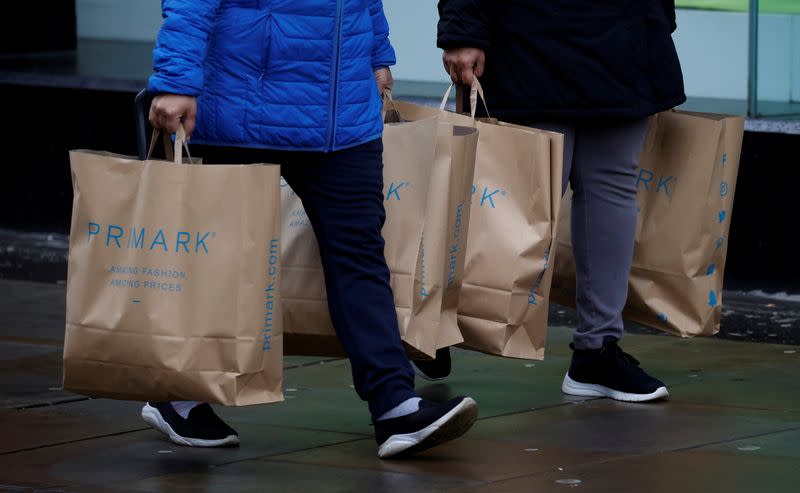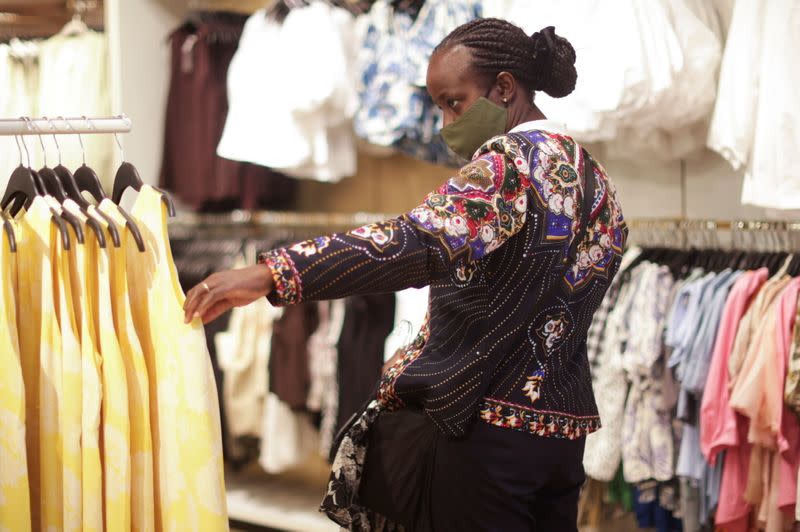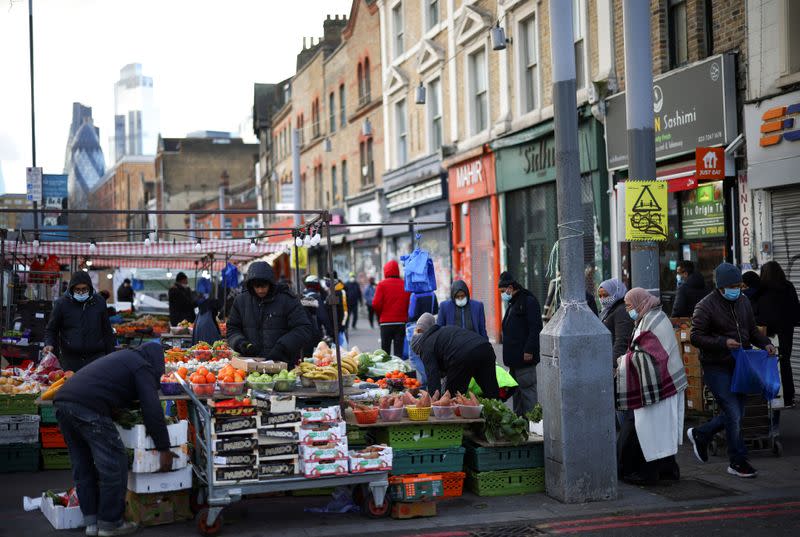UK inflation tests BoE as it jumps to highest since 2018
By David Milliken and William Schomberg
LONDON (Reuters) -British inflation surged further above the Bank of England's target in June to strike 2.5%, its highest since August 2018, increasing speculation that the BoE will have to consider sooner whether to ease off its huge stimulus programme.
Prices for food, fuel, second-hand cars, clothing and footwear rose as the economy bounced back from its lockdown slump, the Office for National Statistics https://www.ons.gov.uk/economy/inflationandpriceindices/bulletins/consumerpriceinflation/june2021 said.
The jump was sharper than forecast by economists in a Reuters poll, who had mostly seen CPI edging up to 2.2% from May's 2.1%, and comes a day after U.S. inflation https://www.reuters.com/business/finance/us-consumer-prices-surge-june-2021-07-13 hit its highest in 13 years at 5.4%.
Sterling strengthened against the dollar and euro. Two-year British government bond yields, which are sensitive to short-term inflation and interest rates, touched a three-week high.
"The Bank (of England) will likely feel that the time is rapidly approaching to dial down the level of support they are providing to the economy," said Hugh Gimber, global market strategist at J.P. Morgan Asset Management.
Most central bankers think the global surge in inflation will be temporary, and reflects supply-chain bottlenecks as Western economies emerge from the coronavirus pandemic.
BoE Deputy Governor Jon Cunliffe said the central bank would take a closer look at how persistent inflation was likely to be when it publishes forecasts next month, but that much of the increase was linked to the reopening of the economy.
"You have to see today's print in the context of what's happening in the UK and similar things are happening in other parts of the world," he told CNBC.
The BoE revised up https://www.reuters.com/world/uk/bank-england-sees-inflation-peaking-over-3-before-falling-back-2021-06-24 its forecast for inflation last month to predict a peak of over 3%. Its outgoing chief economist, Andy Haldane, sees it nearer 4% by the end of the year.
The BoE expects inflation to fall back towards its 2% target over the next couple of years, as subdued pre-pandemic price trends and weak pay growth resume.
But Wednesday's data revive questions about the BoE's decision last November to commit to 100 billion pounds ($138 billion) of new bond purchases throughout 2021. Haldane voted in May and June to stop the programme early.
Financial markets are now pricing in a first rise in BoE interest rates to 0.25% from their current 0.1% by August 2022.
JOB PRESSURE
The BoE worries that the phasing out of the government's jobs subsidies programme by the end of September could lead to higher unemployment, which would take the heat out of inflation.
The CPI's acceleration reflects the weakness of demand last year when much of the economy was shut down.
Global oil prices have climbed as the world economy recovers. Wednesday's figures showed British fuel prices were 20.3% higher than in June 2020, the biggest rise since 2010.
Second-hand car prices rose by 5.6%, though not by as much as in the United States where they accounted for a third of the rise in inflation in June.
Higher used car prices reflected continued avoidance of public transport, production delays for new cars and consumers spending some of their lockdown savings, the ONS said.
June's inflation data were also the first since restaurants reopened to indoor diners, and showed the biggest increase in prices since a similar reopening in July 2020.
Clothing and footwear prices rose by the most since February 2018, up 2.5% on a year ago when they were depressed by lockdown restrictions.
Food prices were 0.6% lower than a year ago, a smaller annual decrease than before and were 0.2% higher on the month, adding to June's annual inflation rate.
House prices https://www.ons.gov.uk/economy/inflationandpriceindices/bulletins/housepriceindex/may2021 in May were 10.0% higher than a year before, matching March's rise, the biggest since September 2007.
($1 = 0.7228 pounds)
(Writing by David Milliken; Editing by William Schomberg and Catherine Evans)

 Yahoo Finance
Yahoo Finance 


